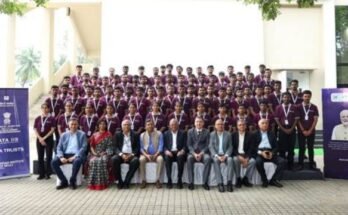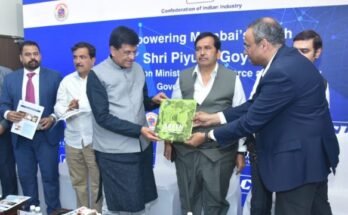Mumbai : In the last few months, the importance of class 12 score and the Maharashtra education board’s HSC syllabus has declined, especially since entrance exams to two of the most sought after professional courses — medical and engineering — will now be based on NCERT (National Council of Educational Research and Training) textbooks.
The Supreme Court in 2016 made it clear that admissions to all medical and dental courses across the country will be conducted on the basis of the National Eligibility-cum-Entrance Test (NEET). Similarly, the All India Council for Technical Education (AICTE) recently announced that from 2018, admissions to all engineering courses will be conducted based on an all-India entrance test. Both the exams will be based on national curriculum, as prescribed in the NCERT textbooks. National school boards like Central Board of Secondary Education (CBSE) use NCERT curriculum while Indian School Certificate’s (ISC) syllabus is similar.
While it is good to have a one-window admission policy for competitive exams, students who have been preparing for Common Entrance Tests (CETs) conducted by respective state governments are now in a fix. “For class 12 our students will have to depend on state board curriculum whereas for the entrance exams they will have to prepare keeping in mind the CBSE curriculum. How is this fair? Especially for students appearing for HSC exam in March 2018,” said a physics professor from a college in Vile Parle.
This is also the end of state government’s CETs for engineering and medical seats. While NEET was made compulsory by the Supreme Court only for admission to medical and dental courses, the Maharashtra state government in December 2016 decided to scrap CET for all health science courses altogether, making NEET the only test applicable for all health science courses. Similarly, AICTE’s decision will now put an end to CET held by state government for engineering aspirants as well.
“Some states have opposed to this move by the AICTE, especially Andhra Pradesh. Their point is very important because the difference in state board and central board syllabus is huge, and to expect students to study two separate curricula for college exams and eventually for the entrance exam will be too much,” said Dayanand Meshram, joint director, Directorate of Technical Education (DTE), Maharashtra.
What’s worse is that students who will be opting for architecture courses in 2018 are still not sure which entrance exam will be applicable to them. Since CET for engineering students will not be applicable, there’s still no clarity if they will still appear for a state-conducted entrance test or a national-level test. “We understand that the government is trying to bring all exams at par but in doing so, we are left with a changed syllabus every year. This constant change is affecting our daily studies, and we don’t deserve to be put through such anxiety,” said Tanvi Tiwaskar (16), student from Nirmala Memorial Foundation College, Kandivli (E).
Note: News shared for public awareness with reference from the information provided at online news portals.



